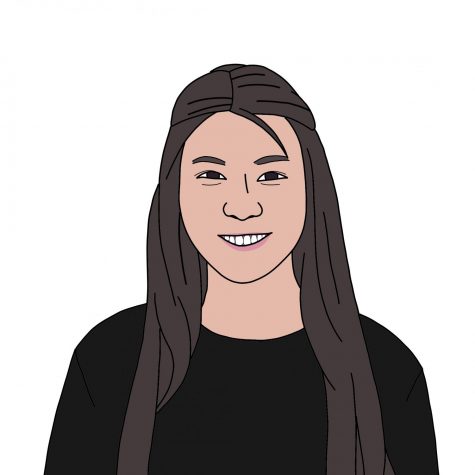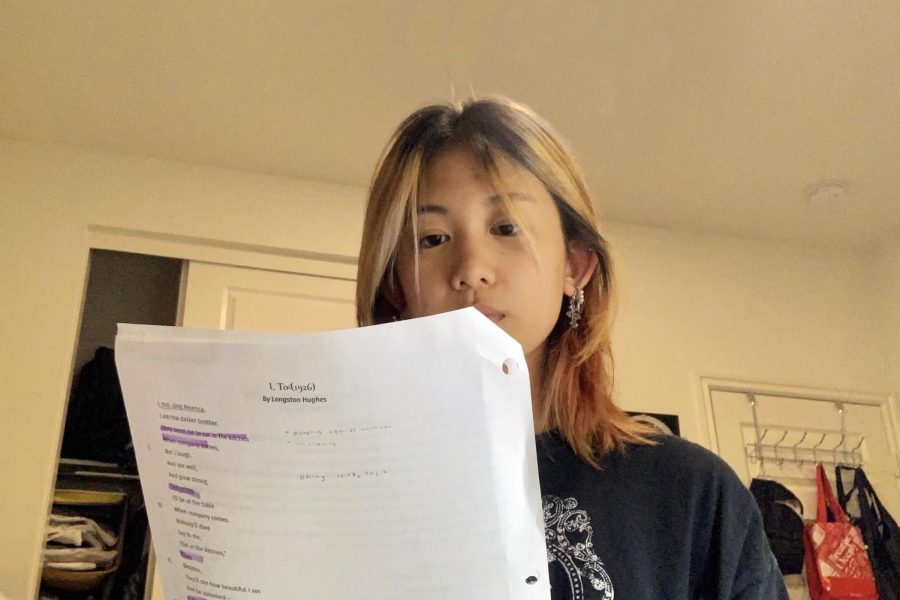American Literature Introduces Black Poets to Curriculum
According to sophomore Ellie Lian, “I, Too” by Langston Hughes introduced her to the Black artistic world of the early 1900s, supplementing her study of “Their Eyes Were Watching God” By Zora Neale Hurston.
American Literature teachers launched their Black poetry unit, which focuses on the Harlem Renaissance, last week in a push to incorporate more Black voices into the Eurocentric curriculum. While the literary and language arts department has been planning to add more diverse literature to the curriculum for the last couple of years, the endeavor was prioritized after the surge in the Black Lives Matter movement last summer, according to literary and language arts interim department chair Doris Schlothan.
Access to free poetry online allowed American Literature teachers to quickly add the Black poetry unit this year without worrying about funding or equity. As American Literature students study America in the 1920-30s with “The Great Gatsby” by F. Scott Fitzgerald and “Their Eyes Were Watching God” by Zora Neale Hurston, Honors American Literature classes are also exploring poetry by Langston Hughes, Claude McKay and Paul Lawrence Dunbar.
“I get annoyed that I focus so much, with ‘The Great Gatsby,’ on the Roaring Twenties from a very white perspective, and so much of the Roaring Twenties was through Black people and Black culture and the Harlem Renaissance and the music that came from it and everything,” Schlothan said.
According to sophomore Shaya Sharifi, students have embraced and welcomed the curriculum change.
“It informs us about the history of the African American community in a way that we’ve never been taught before,” Sharifi said. “I’m starting to understand societal norms of Black communities through [‘Their Eyes Were Watching God’] and poetry.”
Since CP American Literature students do not read “Their Eyes Were Watching God,” they will be exploring more Black authors and poems than the honors students.
“I feel like this unit is really good because a lot of times when we learn about Black culture and Black history, we learn about how they were oppressed through slavery, what they lost,” sophomore Ellie Lian said. “But we never learn about how they thrived as a community, like through the Harlem Renaissance, and how they still managed to develop such a vivid culture.”
Black students, who make up 2% of the Irvine Unified School District’s population according to the Census Reporter, are underrepresented in the community, making it even more important to expose students to their history and perspective through Black literature, according to Schlothan.
“I am very well aware that there is a very small population of Black students at this school, and I still, regardless of that, want them to be represented in our literature,” Schlothan said. “How can we call ourselves American literature if we’re not going to have at least one author, one unit, dedicated around a Black author, Black story? Enslaved Black people are what built America, it’s what established the foundation of why we even have a country today, and they continue to suffer and be disenfranchised.”
Introducing more Black voices to American Literature classes is only the first step in creating a diverse and inclusive curriculum; according to Schlothan, the department is working to also add more Latinx, South Asian, Muslim and LGBTQ+ literature across all literary and language arts classes.
Your donation will support the student journalists of Portola High School. Your contribution will allow us to purchase equipment and cover our annual website hosting costs.

Kate Hayashi is the co-editor-in-chief of the Portola Pilot. She draws all her writing inspiration from Michael Barbaro's "hmms" in “The Daily.” Outside...





